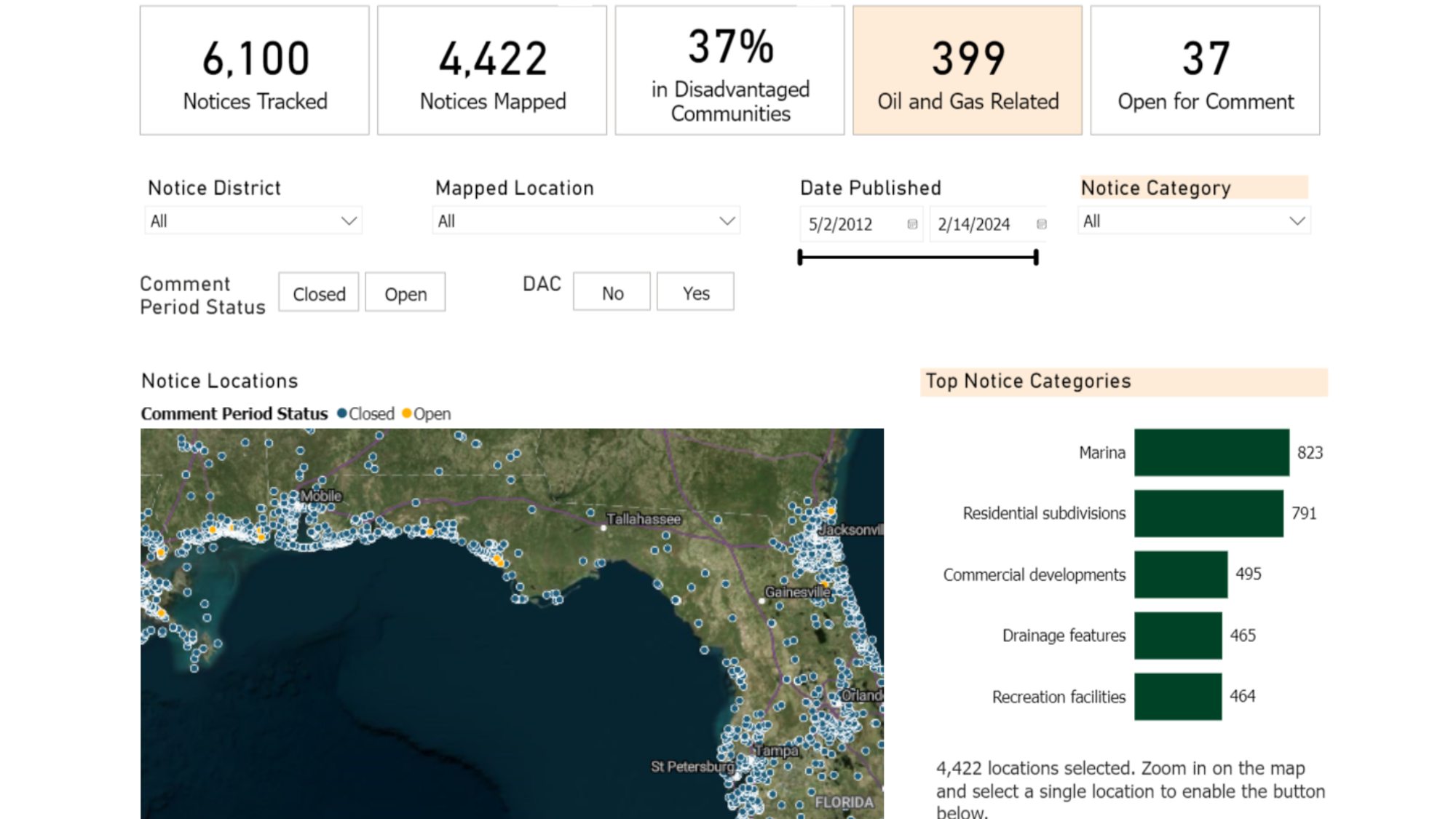Automated pipeline to extract wetland damage data from US Army Corps of Engineers notices
Written by Xinyu Zheng, MPP ’23, and Kumar Himangshu, DSPP ’24
The Environmental Impact Data Collaborative (EIDC) at the Massive Data Institute (MDI) has partnered with Atlas Public Policy and the Environmental Policy Innovation Center (EPIC) to build the Wetlands Impact Tracker, an automated tool to monitor the effect of infrastructure projects on wetlands in the Gulf of Mexico region.
This project uses advanced AI tools such as OpenAI’s ChatGPT 3.5 to transform U.S. Army Corps of Engineers (USACE) permit notices into structured data, which is then displayed on an easily navigable public dashboard.
Any proposal to discharge dredged or fill material into waters of the U.S., including wetlands, must go through a permit review by the U.S. Army Corps of Engineers (USACE). Community groups and others interested in preventing environmental damage are keenly interested in this information but have found that the information in the public notices has been locked away in dense PDF documents, making it challenging for stakeholders to access and analyze the data effectively.
Automatic parsing is necessary due to the large volume of information. However, it is difficult to use traditional automatic parsing methods because the data is in text descriptions without fixed formats. With the recent advent of easily deployable large language models, we can now ‘read’ and automatically summarize text from thousands of notices and then populate summaries in easy-to-use tracking dashboards. Our tracker has collected information from more than 6,000 notices spanning from 2012 to 2023, making it easy for advocacy groups, researchers, and the public to access critical data about environmental impacts in sensitive areas such as the Gulf of Mexico.
A recording of the launch webinar, with an explanation of how to use the dashboard is here.
About the EIDC:
The Environmental Data Impact Collaborative at Georgetown University’s Massive Data Institute at the McCourt School of Public Policy enables researchers, community groups, and policymakers to analyze and visualize data in ways that help them make environmental policy more effective and just.

